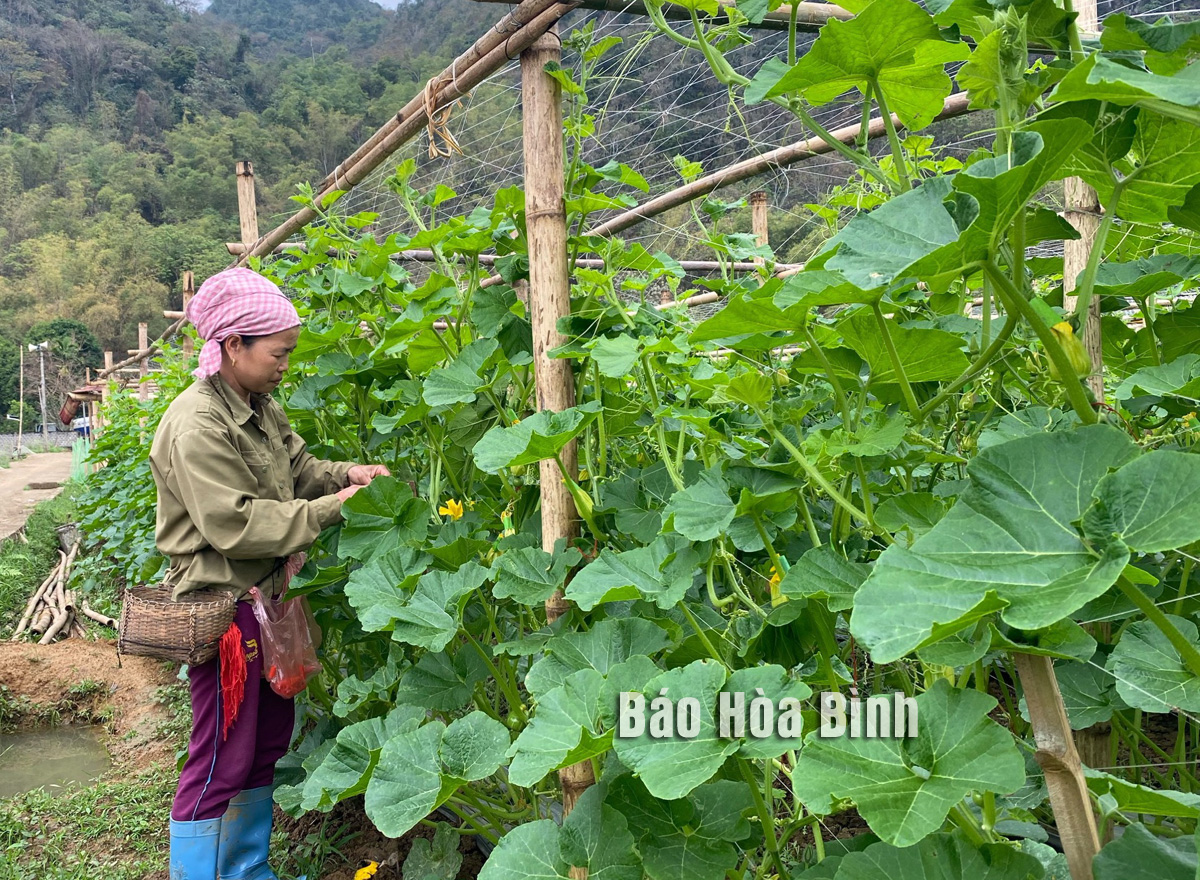
Various emulation movements have been rolled out in Mai Chau district of Hoa Binh province over the past years, encouraging local farmers to promote business and production for sustainable poverty alleviation as well as restructuring of crops and livestock for better incomes. The movements have attracted enthusiastic response from members of the district farmers’ union, particularly ethnic people.
A farmer in Van
Mai commune of Mai Chau district has gained better income thanks to crop
restructuring.
Ha Van Sem, a Thai ethnic minority man in Na
Chieng hamlet, Na Phon commune, was named as one of the 100 most excellent
farmers in the country in 2023. He began his tourism business in 2017 then
decided to expand to high-end resort model by building more stilt houses and
facilities to serve tourists with concessional loans from the local
authorities. He now owns a spacious homestay with quality accommodations that
fetch 2 million VND (78.6 USD) per day and night for each stilt house.
Sem said thanks to support from the local
sectors, especially the farmers’ unions at all levels, he had opportunities to
engage in several vocational training courses on tour guides, restaurant
management, cooking and market demand.
During 2021-2023, his homestay gained an average
of 1.3 billion VND in revenue and up to 800 million VND in profit a year.
Over the past time, the district farmers’ union
has worked closely with its members so as to provide them with rational support
measures for their business development. It has encouraged local farmers to
join the excellent household business movement and the emulation movement to
build new-style rural areas.
The farmers’ unions at all levels have joined
hands with competent authorities to arrange training courses on the transfer of
the state-of-the-art science technology to members, as well as field trips to
farms with outstanding agricultural models, while supporting the farmers with
capital goods and concessional loans.
With the movement of excellent farmers with role
models of production and business put in place, many farmers have applied
technological advances into production, helping them gain up to 1 billion VND
in revenue a year.
According to Chairman of the district farmers’
union Pham The Anh, many good economic models have been developed since the
movement was rolled out, helping to improve the livelihoods of the ethnic
minority people and shortening economic development gap between areas in the
district.
More than just an information technology teacher, Bui Van Nien is an inspiring figure who has nurtured the scientific curiosity and creative spirit of students in Vietnam’s ethnic minority communities.
Da Bac is the most disadvantaged mountainous district in Hoa Binh province, with ethnic minorities accounting for about 90% of its population. Over the past years, the district has mobilised resources to implement ethnic policies to improve the quality of life of local people.
In recent years, Hoa Binh province has consistently prioritised the protection, care, and education of children, particularly those from ethnic minorities and disadvantaged backgrounds, by creating a safe, healthy, and nurturing environment for their all-round development.
The Steering Committee for Tobacco Harm Prevention and Control of Hoa Binh province, in coordination with the Tobacco Harm Prevention and Control Fund, held a ceremony on May 28 in response to the World No Tobacco Day (May 31) and the National No Tobacco Week (from May 25 to 31). The event was chaired by Nguyen Van Toan, Standing Vice Chairman of the provincial People’s Committee and head of the Steering Committee.
Since 2021, the Center for Industrial Promotion and Industrial Development Consulting (CIIDC) under the Department of Industry and Trade has been implementing a school lighting model as part of the plan for using energy efficiently and economically in Hoa Binh Province in the pẻiod of 2021 - 2025. This model not only aims to improve the learning conditions and enhance the education quality, but it also promotes the message of energy saving, energy security, environmental protection and contributes to the goals of socio-economic development.
In the 2024 - 2025 school year, the entire Hoa Binh provincial education sector includes 520 educational institutions and schools. Among them are 13 ethnic boarding schools with 153 classes and 4,487 students. Four of these schools have met national standards, reaching 30.7 percent.



